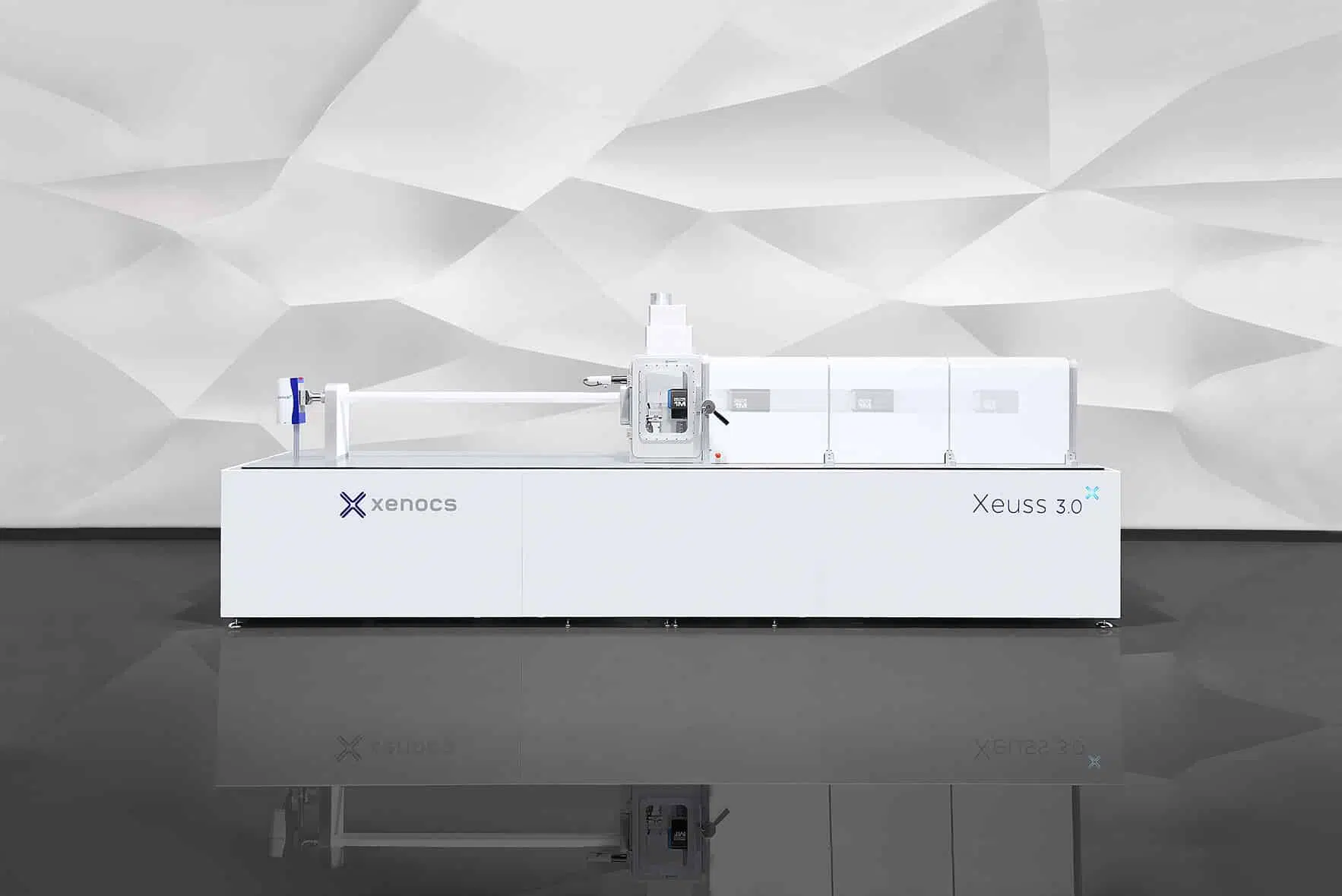Kool, Lars; Dekker, Floris; Bunschoten, Anton; Smales, Glen J.; Pauw, Brian R.; Velders, Aldrik H.; Saggiomo, Vittorio
Gold and silver dichroic nanocomposite in the quest for 3D printing the Lycurgus cup
The Lycurgus cup is an ancient glass artefact that shows dichroism as it looks green when a white light is reflected on it and a red colouring appears when a white light is transmitted through it. This peculiar dichroic effect is due to silver and gold nanoparticles present in the…
Exploiting In-Situ NMR to Monitor the Formation of a Metal-Organic Framework
Jones, Corey; Hughes, Colan; Yeung, Hamish; Paul, Alison; Harris, Kenneth D. M.; Easun, Timothy
The formation processes of metal-organic frameworks are increasingly widely researched using in-situ techniques, although there remains a scarcity of NMR studies in the field. In this work, the synthesis of MFM-500(Ni) has been investigated using the Combined Liquid- And Solid-State In?situ Crystallization NMR strategy, which provides information on the time-evolution…
Controlling the pore size in conjugated polymer films via crystallization-driven phase separation
Guo, Shaowen; Lu, Yaguang; Wang, Binghua; Shen, Changyu; Chen, Jingbo; Reiter, Günter; Zhang, Bin
A wide range of possible applications in sensors and optoelectronic devices have focused considerable attention on porous membranes made of semi-conducting polymers. In this study, porous films of poly(3-hexylthiophene) (P3HT) were conveniently constructed through spin-coating of solutions of a blend of P3HT and polyethylene glycol (PEG). Pores were formed by…
Effect of Phosphaphenanthrene Skeleton in Sulfonated Polyimides for Proton Exchange Membrane Application
Mandal, Arun Kumar; Bisoi, Soumendu; Banerjee, Susanta
Sulfonic acid groups containing aromatic polyimides are of great interest as polymer electrolyte membranes owing to their high thermal and mechanical stability, strong resistance to fuel crossover, excellent film-forming ability, and high proton conductivity. However, these polymers generally experience reduced oxidative permanence. To alleviate the problems associated with the oxidative
Effects of energy-level offset between a donor and acceptor on the photovoltaic performance of non-fullerene organic solar cells
Yang, Chenyi; Zhang, Jianqi; Liang, Ningning; Yao, Huifeng; Wei, Zhixiang; He, Chang; Yuan, Xiaotao; Hou, Jianhui
Minimizing the energy-level offset between a donor and acceptor in order to reduce energy loss (Eloss) is a hot topic in the field of organic solar cells (OSCs). However, for non-fullerene OSCs, the discussion concerning the relationship between energy-level offset and device performance has not yet reached a general conclusion…
Nano-confined crystallization of organic ultrathin nanostructure arrays with programmable geometries
Gao, Hanfei; Qiu, Yuchen; Feng, Jiangang; Li, Shuang; Wang, Huijie; Zhao, Yuyan; Wei, Xiao; Jiang, Xiangyu; Su, Yewang; Wu, Yuchen; Jiang, Lei
Fabricating ultrathin organic semiconductor nanostructures attracts wide attention towards integrated electronic and optoelectronic applications. However, the fabrication of ultrathin organic nanostructures with precise alignment, tunable morphology and high crystallinity for device integration remains challenging. Herein, an assembly technique for fabricating ultrathin organic single-crystal
Random Organic Nanolaser Arrays for Cryptographic Primitives
Feng, Jiangang; Wen, Wen; Wei, Xiao; Jiang, Xiangyu; Cao, Moyuan; Wang, Xuedong; Zhang, Xiqi; Jiang, Lei; Wu, Yuchen
Next-generation high-security cryptography and communication call for nondeterministic generation and efficient authentication of unclonable bit sequences. Physical unclonable functions using inherent randomness in material and device fabrication process have emerged as promising candidates for realizing one-way cryptographic systems that avoid duplication and attacks. However, previous
Stabilizing Silver Window Electrodes for Organic Photovoltaics Using a Mercaptosilane Monolayer
Lee, Jaemin; Walker, Marc; Varagnolo, Silvia; Huband, Steven; Hatton, Ross A.
A single layer of the bifunctional molecule 3-mercaptopropyltrimethoxysilane is shown to be remarkably effective at improving the stability of optically thin silver film electrodes toward spontaneous morphological change and oxidation by airborne sulfur. Inclusion of this layer in the novel transparent electrode WO3(30 nm)/silver (13 nm)/solgel ZnO (27 nm) at…
Physical Chemical Properties of Shea/Cocoa Butter Blends and their Potential for Chocolate Manufacture
Rodriguez-Negrette, Ana Carolina; Huck-Iriart, Cristián; Herrera, María Lidia
Cocoa butter (CB) is the preferred fat for chocolates and confections. However, for technological and economic reasons, there have been strong efforts for partially replacing it. As shea butter (SB) has become an important natural source of symmetrical stearic-rich triacylglycerols (TAG), the aim of this work was to study physical…
Scalable synthesis of dispersible iron carbide (Fe3C) nanoparticles by nanocasting
Fletcher, D. C.; Hunter, R.; Xia, W.; Smales, G. J.; Pauw, B. R.; Blackburn, E.; Kulak, A.; Xin, Huolin; Schnepp, Z.
Metal carbides have shown great promise in a wide range of applications due to their unique catalytic, electrocatalytic and magnetic properties. However, the scalable production of dispersible metal carbide nanoparticles remains a challenge. Here, we report a simple and scalable route to dispersible iron carbide (Fe3C) nanoparticles. This uses MgO…


































